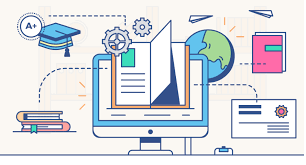IT software services are transforming the landscape of modern business operations, serving as the backbone for innovation, efficiency, and growth. As enterprises navigate a rapidly evolving digital environment, these services provide the essential tools and frameworks needed to remain competitive and agile. From enhancing workflow automation and data management to enabling seamless communication and robust security protocols, IT software services empower businesses to optimize processes, reduce costs, and deliver superior customer experiences. In an era where technology is at the forefront of every industry, understanding and leveraging the full potential of IT software services is crucial for any organization looking to revolutionize its approach and achieve sustainable success.
Revolutionizing businesses with IT software services involves leveraging technology to enhance efficiency, productivity, and innovation. IT software services encompass a wide range of solutions, including custom software development, cloud computing, data analytics, cybersecurity, and more. These services enable businesses to streamline operations, improve communication, and gain insights from data. Custom software development allows businesses to create tailor-made applications that meet their specific needs, providing a competitive edge by optimizing workflows and automating repetitive tasks. Cloud computing facilitates scalability and flexibility, enabling companies to access IT resources on-demand and reduce infrastructure costs. Data analytics tools help organizations make informed decisions by transforming raw data into actionable insights, improving strategic planning and market understanding. Cybersecurity measures are critical in protecting digital assets and ensuring compliance with regulations, safeguarding businesses from potential threats and data breaches. Additionally, IT software services can enhance customer experiences through better service delivery and personalized interactions, driven by CRM systems and AI-driven customer support. The integration of these technologies into business processes fosters innovation, encouraging companies to explore new business models, enter new markets, and create value-added services. This digital transformation is essential for staying competitive in an increasingly digital economy, where agility and technological adoption are paramount.
Unlocking Potential with Tailored IT Software Services

In today's digital age, IT software services have become the backbone of numerous industries, driving innovation and efficiency. These services encompass a wide range of solutions, from bespoke software development and systems integration to IT consulting and cloud services. By leveraging these services, businesses can streamline operations, enhance productivity, and gain a competitive edge in the market. Custom IT software solutions enable companies to address specific challenges and adapt to changing needs rapidly. As technology evolves, the demand for comprehensive IT software services continues to grow, making them an indispensable asset for companies striving to succeed in a technology-driven world.
Unlocking potential with tailored IT software services involves customizing technology solutions to meet the specific needs and objectives of a business. This approach ensures that the technology aligns closely with the business processes, enhancing efficiency and effectiveness. **Key Aspects:** 1. **Customization**: Tailored software services adapt to the unique requirements of a business, offering personalized solutions rather than generic products. This includes designing software to integrate seamlessly with existing systems and workflows. 2. **Scalability**: Customized IT solutions are designed to grow with the business. As the company expands, the software can be scaled up to handle increased data, processes, and users without a complete overhaul. 3. **Enhanced Productivity**: By aligning software features with business needs, employees can use the technology more effectively, resulting in increased productivity. Custom software typically includes features that automate routine tasks, freeing up time for more strategic activities. 4. **Competitive Advantage**: Tailored IT solutions can provide a business with a unique toolset that competitors may not have, giving them an edge in the marketplace. This might be through proprietary software that improves customer service or enhances operational efficiency. 5. **Support and Maintenance**: Businesses benefit from bespoke support services that understand the specifics of their implemented systems. This ensures quicker resolution of issues and minimal downtime. 6. **Data Management and Security**: Custom software can provide advanced data management capabilities and ensure that security measures are tailored to protect sensitive information effectively. 7. **Cost-Effectiveness**: Although the initial investment may be higher, tailored IT solutions often result in lower long-term costs by reducing the need for workarounds, excessive manual intervention, and future re-customization. Tailored IT software services play a crucial role in helping businesses achieve their goals by providing solutions that are not only robust but also adaptable to future growth and changing market conditions.
Maximizing Business Efficiency Through IT Software Solutions

Maximizing business efficiency through IT software solutions involves leveraging various technologies to streamline operations, enhance productivity, and reduce costs. Here are key components and strategies to consider: 1. **Automation**: Implementing software that automates routine tasks can significantly reduce human error and free up employee time for more strategic activities. Examples include customer relationship management (CRM) systems, enterprise resource planning (ERP) systems, and robotic process automation (RPA). 2. **Data Management and Analytics**: Effective data management tools and analytics software enable businesses to collect, process, and analyze data for better decision-making. By utilizing business intelligence platforms, companies can gain insights into market trends, customer behavior, and operational efficiency. 3. **Cloud Computing**: Migrating to cloud-based solutions can help businesses reduce IT costs and improve scalability. Cloud computing offers flexibility and access to a range of services such as data storage, software applications, and infrastructure without the need for extensive onsite hardware. 4. **Collaboration Tools**: With the rise of remote work, tools that facilitate communication and collaboration among teams are crucial. Software solutions like Slack, Microsoft Teams, and Zoom allow team members to work together effectively regardless of their physical location. 5. **Cybersecurity Solutions**: Protecting business data and systems from cyber threats is vital for maintaining efficiency. Implementing security software solutions such as firewalls, antivirus programs, and intrusion detection systems can protect a business’s infrastructure and sensitive information. 6. **Enterprise Resource Planning (ERP)**: ERP systems integrate various business processes into a single unified system. This integration facilitates smooth information flow across different departments, helping in synchronizing operations, improving productivity, and optimizing resources. 7. **Customer Relationship Management (CRM)**: CRM software helps businesses manage interactions with current and potential customers. By having a centralized database of customer information, companies can improve customer service, automate sales processes, and enhance marketing efforts. 8. **Supply Chain Management Solutions**: To ensure an efficient supply chain, businesses can use software that provides real-time tracking, demand forecasting, and inventory optimization. This helps in reducing waste, improving supplier relations, and ensuring timely product delivery. 9. **Project Management Tools**: Utilizing project management software helps in planning, executing, and monitoring projects efficiently. Features like task scheduling, resource allocation, and progress tracking aid in ensuring projects are completed on time and within budget. Implementing these IT software solutions requires careful planning and a clear understanding of business needs. It often involves evaluating existing processes, identifying areas in need of improvement, and selecting the right technologies to address those needs. By doing so, businesses can achieve greater efficiency, agility, and competitiveness.
Navigating the Future: IT Software Services Explained

"Navigating the Future: IT Software Services Explained" likely covers the evolving landscape of IT software services, exploring how they are shaping businesses and industries today. This type of content typically focuses on the role of software services in enhancing operational efficiency, supporting digital transformation, and driving innovation across various sectors. Key areas that such a guide might explore include: 1. **Cloud Computing**: Examining how cloud services are enabling businesses to scale operations, reduce costs, and enhance flexibility. Discussions might include public, private, and hybrid cloud models. 2. **Data Analytics and Big Data**: Analyzing how businesses utilize data analytics to make informed decisions, improve customer experiences, and gain competitive advantages. 3. **Cybersecurity**: Addressing growing threats and the need for robust security strategies to protect data and systems from cyber-attacks. 4. **Artificial Intelligence and Machine Learning**: Exploring how AI and ML are being integrated into software services to automate processes, enhance decision-making, and personalize customer interactions. 5. **Internet of Things (IoT)**: Discussing how IoT is connecting devices and systems, leading to more efficient operations and new business models. 6. **Software Development Trends**: Covering methodologies such as Agile and DevOps, and their impact on the speed and quality of software delivery. 7. **Industry-Specific Solutions**: Highlighting how software services are tailored to meet the specific needs of different industries, such as healthcare, finance, or retail. 8. **Regulatory and Ethical Considerations**: Addressing the importance of compliance with regulations and maintaining ethical standards in software service delivery. Overall, "Navigating the Future: IT Software Services Explained" would serve as a resource for understanding how technological advancements are influencing IT service strategies and what businesses can do to stay ahead in a rapidly changing environment.
The Role of IT Software Services in Modern Business
best software agency
The role of IT software services in modern business is multifaceted and critical to operational efficiency, innovation, and competitiveness. These services are foundational for businesses seeking to leverage technology to optimize operations, enhance customer experiences, and achieve strategic goals. Here are some key aspects of their role: 1. **Streamlining Operations**: IT software services streamline business operations by providing tools for automation, which reduce manual labor and human error. This can include everything from automating mundane tasks to implementing complex Enterprise Resource Planning (ERP) systems that integrate various business processes into a single platform. 2. **Enhanced Communication and Collaboration**: Modern software solutions, such as cloud-based collaboration tools and communication platforms, enable seamless communication and collaboration among employees, irrespective of their physical location. This is especially valuable in today's global business environment where remote work is increasingly common. 3. **Data Management and Analytics**: IT services offer solutions for data collection, storage, and analysis. Advanced analytics software allows businesses to harness big data, offering insights into consumer behavior, market trends, and operational efficiencies, which can drive informed decision-making. 4. **Customer Relationship Management (CRM)**: IT software solutions like CRM systems help businesses manage interactions with current and potential customers, enhancing sales, improving customer service, and increasing profitability. These systems offer a centralized repository of customer information, enabling better customer service and personalized marketing strategies. 5. **Cybersecurity**: As cyber threats become more sophisticated, IT software services play a crucial role in protecting business data and systems. This includes deploying antivirus software, firewalls, and intrusion detection systems, as well as implementing robust cybersecurity policies and protocols to safeguard against breaches. 6. **Innovation and Agility**: Software services support innovation by providing agility, allowing businesses to quickly adapt to market changes and new opportunities. Development frameworks and cloud infrastructure enable rapid deployment and scaling of new applications and services. 7. **Cost Efficiency**: By automating processes and improving efficiency, IT software services help businesses reduce operational costs. Cloud-based solutions, in particular, offer scalable resources without the need for significant upfront investment in hardware. 8. **Regulatory Compliance**: Many industries require compliance with various regulations. IT software solutions can assist in ensuring compliance by offering tools that monitor, document, and report compliance activities, reducing the risk of non-compliance and its associated penalties. 9. **Supply Chain Management**: IT software services optimize supply chain operations by providing visibility and control over every aspect, from procurement to inventory management and logistics. This leads to reduced costs, better supplier performance, and improved customer service. In summary, IT software services are vital to modern business strategy, offering tools that not only streamline processes but also provide the insights and capabilities needed to stay competitive in an increasingly digital world.
Innovative IT Software Services for Competitive Advantage<
best digital marketing company/h2>
Innovative IT software services are crucial for organizations seeking a competitive advantage. These services can streamline operations, enhance customer experiences, and enable faster decision-making. Here are some key aspects: 1. **Cloud Computing**: - **Scalability and Flexibility**: Allows businesses to scale their resources based on demand, thereby reducing costs and improving efficiency. - **Collaboration and Accessibility**: Facilitates remote work and collaboration with tools accessible from anywhere at any time. 2. **Artificial Intelligence and Machine Learning**: - **Data Analysis**: Automates the processing of large data sets to uncover patterns and insights that inform strategic decisions. - **Personalization**: Enhances customer experiences through personalized services and recommendations. 3. **Big Data Analytics**: - **Predictive Analytics**: Identifies future trends and customer behaviors, enabling proactive business strategies. - **Performance Optimization**: Detects inefficiencies and opportunities for improvements in operations. 4. **Cybersecurity Solutions**: - **Advanced Threat Detection**: Protects against cyber threats with increased vigilance and can respond to attacks in real time. - **Compliance and Risk Management**: Ensures compliance with regulations and standards, mitigating potential fines and reputational damage. 5. **Internet of Things (IoT)**: - **Operational Efficiency**: Connects devices and systems for streamlined operations and real-time data collection. - **Innovative Products and Services**: Offers new business models and revenue streams through smart, connected products. 6. **Agile and DevOps Methodologies**: - **Speed and Quality of Delivery**: Improves the development process, allowing for faster release cycles and enhanced product quality. - **Cross-functional Collaboration**: Encourages collaboration across various departments, breaking down silos and improving agility. 7. **Blockchain Technology**: - **Transparency and Security**: Offers tamper-proof records and transactions, increasing trust and efficiency in business processes. - **Smart Contracts**: Automates contract execution, reducing the need for intermediaries and cutting costs. 8. **Robotic Process Automation (RPA)**: - **Task Automation**: Automates repetitive tasks, allowing human resources to focus on more strategic activities. - **Cost Reduction**: Reduces operational costs and errors associated with manual processes. Implementing these innovative IT services requires a strategic approach, aligning technology with business goals to unlock their full potential. Organizations that effectively leverage these technologies are better positioned to stay ahead of the competition by enhancing their operational capabilities and delivering superior customer value.